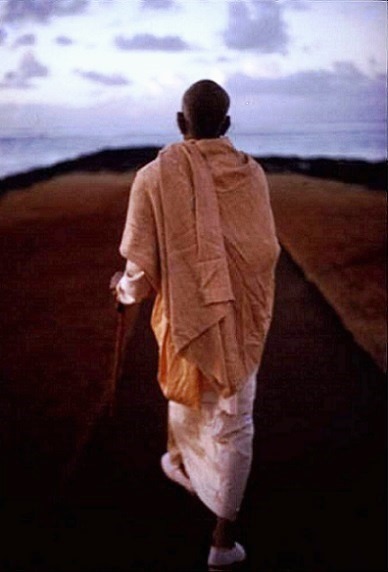"Whenever an ācārya comes, following the superior orders of the Supreme Personality of Godhead or His representative, he establishes the principles of religion, as enunciated in Bhagavad-gītā. Religion means abiding by the orders of the Supreme Personality of Godhead. Religious principles begin from the time one surrenders to the Supreme Personality of Godhead. It is the ācārya’s duty to spread a bona fide religious system and induce everyone to bow down before the Supreme Lord. One executes the religious principles by rendering devotional service, specifically the nine items like hearing, chanting and remembering. Unfortunately, when the ācārya disappears, rogues and nondevotees take advantage and immediately begin to introduce unauthorized principles in the name of so-called svāmīs, yogīs, philanthropists, welfare workers and so on. Actually, human life is meant for executing the orders of the Supreme Lord, and this is stated in Bhagavad-gītā (9.34):
man-manā bhava mad-bhakto
mad-yājī māṁ namaskuru
mām evaiṣyasi yuktvaivam
ātmānaṁ mat-parāyaṇaḥ
'Engage your mind always in thinking of Me and become My devotee. Offer obeisances and worship Me. Being completely absorbed in Me, surely you will come to Me.'
The main business of human society is to think of the Supreme Personality of Godhead at all times, to become His devotees, to worship the Supreme Lord and to bow down before Him. The ācārya, the authorized representative of the Supreme Lord, establishes these principles, but when he disappears, things once again become disordered. The perfect disciples of the ācārya try to relieve the situation by sincerely following the instructions of the spiritual master. At the present moment practically the entire world is afraid of rogues and nondevotees; therefore this Kṛṣṇa consciousness movement is started to save the world from irreligious principles. Everyone should cooperate with this movement in order to bring about actual peace and happiness in the world."
(Śrīmad-Bhāgavatam 4.28.48, Purport)

